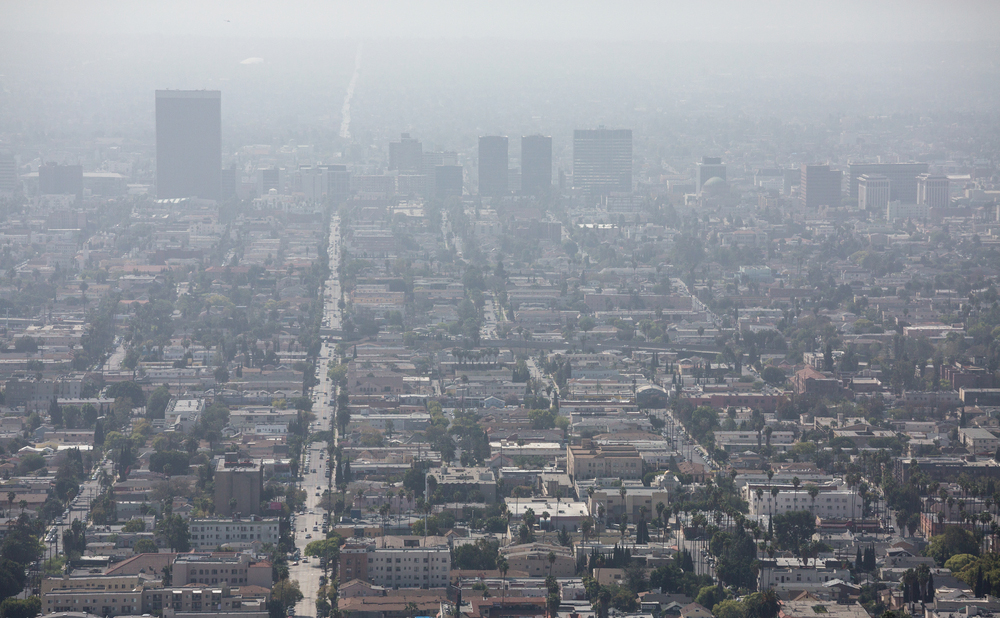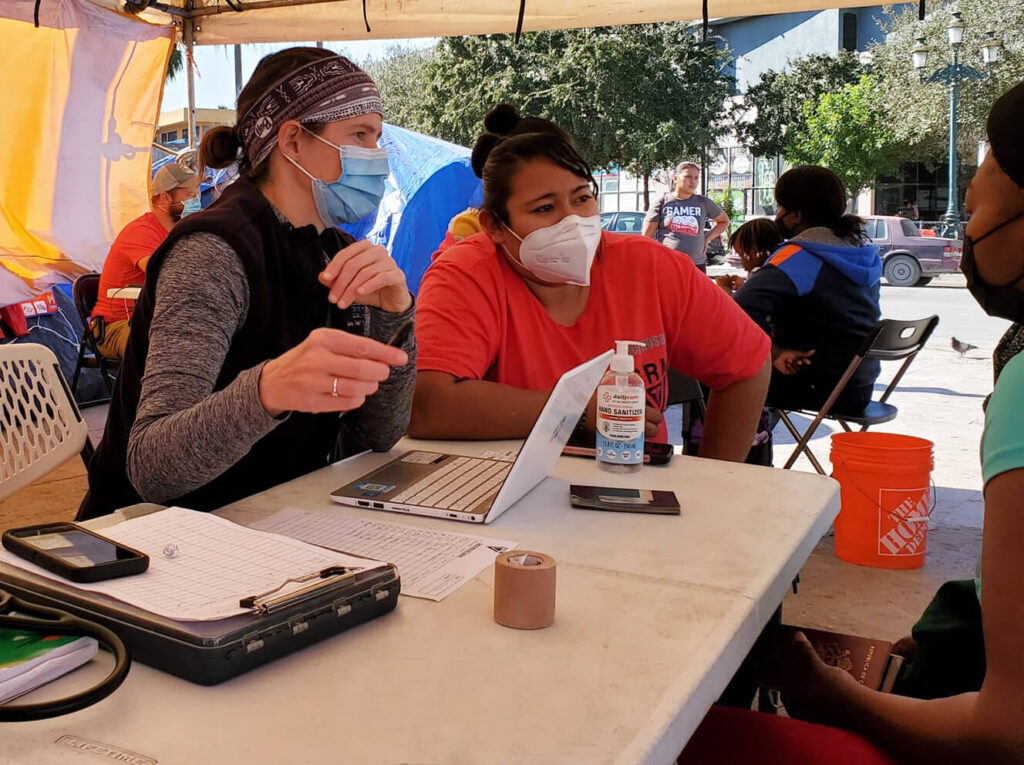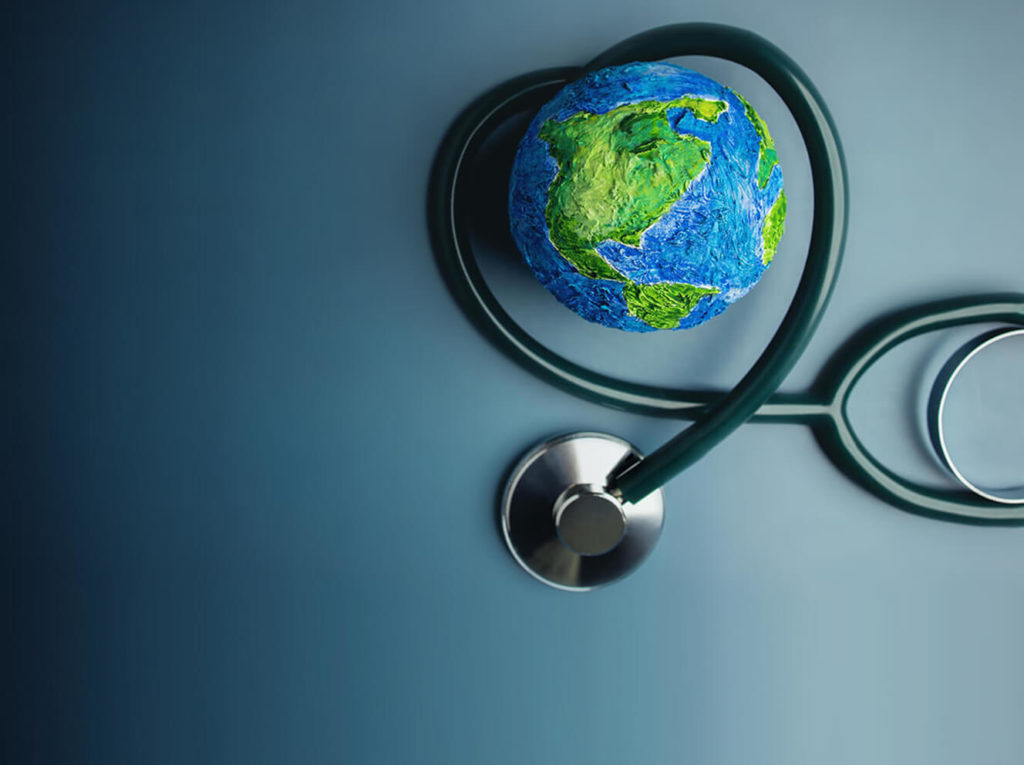Pollutants in the air — carbon dioxide, ozone, methane and particulate matter — often come up for discussion when the topic is climate change. Human activity is the source of all these substances, and many are implicated in the two-degree Fahrenheit rise in average temperatures since the late-nineteenth century.
But while climate change is just beginning to claim human victims, a more immediate threat comes from these chemicals and particulate matter themselves. Every year an estimated 7 million people die from cancer, lung disease and heart disease as a result of air pollution, and that number continues to increase.

Regina LaRocque, MD, MPH, an infectious disease specialist at Massachusetts General Hospital, is among many physicians advocating for the improvement of air quality through a transition to renewable energy sources. She and Alex Rabin, MD, a pulmonary and critical care physician at Mass General, recently testified at a legislative hearing to increase Massachusetts’ renewable energy portfolio standards. Reducing the use of fossil fuels, she says, not only will help stall the coming threat of a warming planet but also will bring health benefits in the next few years.
What dangers does air pollution pose to human health?
We know that air pollutants contribute to respiratory and cardiac diseases — asthma, heart attacks, bronchitis and lung cancer. We also know from the medical literature that air pollutants are associated with increased hospitalization rates and premature death. People with respiratory diseases, pregnant women, young children who are still developing their lung capacities, the elderly — all of them are especially vulnerable.
Most policy makers don’t understand the association between energy regulations and our health.
How much pollution is too much?
For vulnerable patients with serious lung disease, breathing unhealthy air even for a short period can exacerbate their condition. Anyone with asthma, for example, is probably aware that there are precipitants, such as pollen, that cause asthma to flare. But there are other compounds in the air that we can’t as readily detect with our noses or eyes that also trigger asthma attacks. Studies have shown that ground-level ozone and particulate matter increase the risk of asthma attacks.
What steps can we take to improve air quality?
The problem is the way we currently power our vehicles and get our electricity. There are better energy options that we need to explore. Partners HealthCare, the umbrella organization that includes Massachusetts General Hospital, for instance, gets 100% of its electricity from renewable sources, because we know that the way we produce electricity affects the health of the communities we serve. But Partners is able to do this because the state has policies that promote the development of renewable energy sources. So having legislative levers to pull is also important.
What do legislators need to know about the need for change?
Most policy makers don’t understand the association between energy regulations and our health. While it might cost a bit more to source our energy from solar or wind power, we are going to save a lot in health expenses. That’s a really important calculation to consider. We need to assign a health cost to our continued dependence on coal-fired or natural-gas-fired power plants. A new report in the Lancet found that pollution-related diseases in 2015 accounted for 7% of health spending in developing countries and about 2% of costs in wealthy nations. That’s the message that we’re trying to get across to people who write the laws.
Physician voices are important because policy decisions are being made that have very important effects on health.
The Trump administration has said the United States will withdraw from the Paris climate accord and that it is canceling the Clean Power Plan, which was designed to limit fossil fuel use in generating electricity. What will the consequences be?
Stepping away from the Clean Power Plan and other initiatives represents a reversal of many years of hard work. It was estimated that, once fully implemented, the Clean Power Plan would have prevented 90,000 pediatric asthma attacks and more than 3,000 premature deaths each year. So we are giving up tangible health benefits by not pursuing that policy in particular.
How did you, as an infectious disease specialist, become an advocate for renewable energy?
Climate change will have a major impact on infectious diseases. Severe weather events, expanding habitats for mosquitoes and other disease carriers — these will likely cause more suffering around the world. Two years ago I decided I couldn’t sit on the sidelines. Physician voices are important because policy decisions are being made that have very important effects on health. Health experts need to be part of the conversation. We need to not only point out the problems we can articulate but also lead by example.
This story was first published by Proto Magazine.





